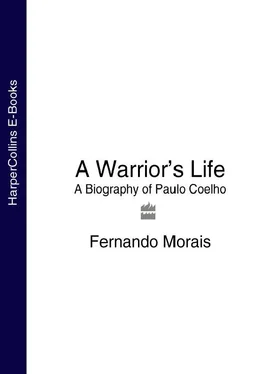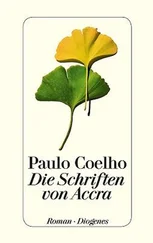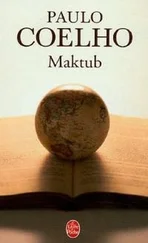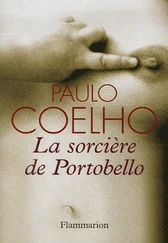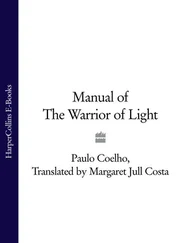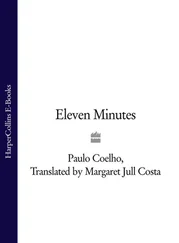The only surprise is the last piece of news: the previous day, an armed gang stopped a lorry in a Buenos Aires suburb and stole the entire precious cargo – 2,000 copies of The Zahir that had just left the printer’s and were on their way to bookshops in the city. Some days later, a literary critic in the Diario de Navarra in Spain suggested that the robbery had been a publicity stunt dreamed up by the author as a way of selling more copies.
All this stress and anxiety is repeated every two years, each time Paulo Coelho publishes a new book. On these occasions, he shows himself to be as insecure as a novice. This has always been the case. When he wrote his first book, O Diário de um Mago [ The Pilgrimage ], he shared the task of distributing publicity leaflets outside Rio’s theatres and cinemas with his partner, the artist Christina Oiticica, and then went round the bookshops to find out how many copies they had sold. After twenty years, his methods and strategies may have changed, but he has not: wherever he is, be it in Tierra del Fuego or Greenland, in Alaska or Australia, he uses his mobile phone or his laptop to keep abreast of everything to do with publication, distribution, media attention and where his books are on the best-seller lists.
He has still not yet filled out the inevitable hotel form or gone up to his room, when Lea arrives. A pleasant woman in her fifties, married to the Swiss Minister of the Interior, she is a devoted reader of Coelho’s books, having first met him at the World Economic Forum in Davos. When she learned that he was visiting Budapest, Lea took the train from Geneva, travelling over 4,000 kilometres through Switzerland, Austria and half of Hungary in order to spend a few hours in Budapest with her idol. It is almost eight o’clock when Coelho finally goes up to the suite reserved for him at the Gellert.
The room seems palatial in comparison with his modest luggage, the contents of which never vary: four black T-shirts, four pairs of coloured silk boxer shorts, five pairs of socks, a pair of black Levi’s, a pair of denim Bermudas and a pack of Galaxy cigarettes (his stock of the latter is regularly topped up by his office in Rio or by kind visitors from Brazil). For formal occasions he adds to his luggage the coat he was wearing when he flew in from France, a shirt with a collar, a tie and his ‘society shoes’ – a pair of cowboy boots – again all in black.
Contrary to what one might think on first seeing him, his choice of colour has nothing to do with luck, mysticism or spirituality. As someone who often spends two-thirds of the year away from home, he has learned that black clothes are more resistant to the effects of hotel laundries, although on most occasions he washes his own socks, shirts and underpants. In one corner of his case is a small wash bag containing toothbrush and toothpaste, a razor, dental floss, eau de cologne, shaving foam and a tube of Psorex, a cream he uses for the psoriasis he sometimes gets between his fingers and on his elbows. In another corner, wrapped in socks and underpants, are a small image of Nhá Chica, a holy woman from Minas Gerais in Brazil, and a small bottle of holy water from Lourdes.
Half an hour later, he returns to the hotel lobby freshly shaved and smelling of lavender, and looking as refreshed as if he has just woken from a good night’s sleep; his overcoat, slung over his shoulders, allows a glimpse of a small blue butterfly with open wings tattooed on his left forearm. His last engagement for the day is dinner at the home of an artist in the Buda hills above the city on the right bank of the Danube, with a wonderful view of the old capital, on which, this evening, a fine drizzle is falling.
In a candlelit room some fifty people are waiting for him, among them artists, writers and diplomats, mostly young people in their thirties. And, as usual, there are a lot of women. Everyone is sitting around on sofas or on the floor, talking or, rather, trying to talk above the noise of heavy rock blasting out from loudspeakers. A circle of people gathers round the author, who is talking non-stop. They soon become aware of two curious habits: every now and then, he makes a gesture with his right hand as if brushing away an invisible fly from in front of his eyes. Minutes later, he makes the same gesture, but this time the invisible fly appears to be buzzing next to his right ear. At dinner, he thanks everyone in fluent English for their kindness and goes on to praise Hungarian cooks, who can transform a modest beef stew into an unforgettable delicacy – goulash. At two in the morning, after coffee and a few rounds of Tokaji wine, everyone leaves.
At a quarter to ten the following morning, the first journalists invited to the press conference have already taken their places on the thirty upholstered chairs in the Hotel Gellert’s small meeting room. Anyone arriving punctually at ten will have to stand. The person the reporters are interested in woke at 8.30. Had it not been raining he would have taken his usual hour-long morning walk. Since he dislikes room service (‘Only sick people eat in their bedrooms’), he has breakfasted in the hotel’s coffee bar, gone back to his room to take a shower, and is now reading newspapers and surfing the Internet. He usually reads a Rio newspaper and one from São Paulo, as well as the Paris edition of the International Herald Tribune . The remainder of his daily reading will arrive later in the form of cuttings and synopses focusing on the author and his books.
At exactly ten o’clock he enters the room, which is lit by reflectors and full of journalists, and sits down behind the small table provided, on which stand a bottle of mineral water, a glass, an ashtray and a vase of red roses. His guide, Gergely, takes the microphone, explains the reason for the author’s visit to the country and announces the presence in the front row of his agent, Mônica Antunes. She stands shyly and acknowledges the applause.
Coelho speaks in English for forty minutes, which includes the time it takes for Gergely to translate each sentence into Hungarian. He recalls his visit to Budapest in 1982, and talks a little about his personal life and his career as a writer. He reveals, for example, that, following the success of The Pilgrimage , the number of pilgrims to Santiago de Compostela rose from 400 a year to 400 a day. In recognition of this, the Galician government has named one of the streets of Santiago ‘Rua Paulo Coelho’. When the meeting is opened up for questions, it becomes clear that the journalists present are fans of his work. Some mention a particular book as ‘my favourite’. The meeting passes without any indiscreet or hostile questions being asked; the friendly atmosphere is more like a gathering of the Budapest branch of his fan club. When Gergely brings the meeting to an end, the reporters reward the author with a round of applause. A small queue forms in front of the table and an improvised signing session exclusive to Hungarian journalists begins. Only then does it become apparent that nearly all of them have copies of his books in their bags.
The writer, who rarely lunches, has a quick snack in the hotel restaurant – toast with liver pâté, a glass of orange juice and an espresso. He makes use of a free half-hour before his next appointment to glance at the international news in Le Monde and El País . He’s always interested in what’s going on in the world and he’s always well informed about any wars and crises that hit the headlines. It’s quite usual to hear him speaking confidently (but without ever appearing to be dictatorial or superior) on matters as various as the growing crisis in Lebanon or the nationalization of oil and gas in Bolivia. He publicly defended the exchange of hostages held by Marxist guerrillas in Colombia for political prisoners being held by the Colombian government, and his protest letter in 2003 entitled ‘Thank you, President Bush’, in which he castigated the American leader for the imminent invasion of Iraq, was read by 400 million people and caused much debate.
Читать дальше
